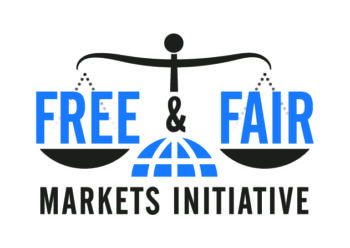
Date: March 5, 2019
Contact: mediacenter@freeandfairmarketsinitiative.org
In Case You Missed It!
HQ2 Opponents Were Anti-Amazon, Not Anti-Business
Robert B. Engel
Morning Consult
March 4, 2019
Amazon recently put the kibosh on a planned corporate campus in Queens, and some are saying the deal was done in by anti-business radicals who would have fought tooth and nail against any big company moving into town. But while this simplistic version of events feeds partisan narratives, it ignores a critical fact: Many New York-based companies spoke out against the deal.
It is more accurate to say that the opposition in New York was anti-Amazon, not anti-business. The truth is all Americans have good reason to be worried about Amazon’s harmful impact, and the company’s retreat in the face of scrutiny should be a warning shot to any city still considering doing business with Amazon in the future.
For starters, Amazon has a long history of putting small businesses at a disadvantage on its platform. For example, by stockpiling data on which products consumers are flocking to, Amazon can then introduce competing private-label versions of these products. And because Amazon already requires brands selling on its site to offer their lowest prices through policies known as most-favored nation provisions, small businesses who want to sell online are left with little choice but to sell on Amazon. This controversial practice is putting the pinch on small businesses across the country and making entrepreneurship a fraught proposition. The fact that new business creation has reached a 40-year low is most certainly not a coincidence.
Amazon’s anticompetitive strategy when it comes to e-commerce boils down to its role as both a platform and a retailer. This presents conflicts of interest, enabling the company to influence sales trends and drive consumers to its own products and services by controlling search results, and then undercutting prices by as much as 60 percent in some instances. Even major brands such as Duracell and Williams-Sonoma have been affected by this. Amazon’s duel role as both a platform and a competitor leaves businesses with a terrible choice to make, since nearly half of all online sales take place on Amazon’s platform.
Americans are also right to be disturbed by troubling reports of grueling working conditions inside Amazon warehouses and for delivery drivers, which came front and center in the HQ2 backlash in New York – workers from the company’s Staten Island warehouse spoke out ahead of a city council meeting scrutinizing the deal. More and more employees are speaking out, and their stories range from unfair management demands to injuries and even death – seven people have died inside Amazon warehouses over the last five years. In fact, the tech giant landed on the National Council for Occupational Health and Safety’s 2018 “dirty dozen” list.
Given Amazon’s track record, New Yorkers who see market competition and responsible growth as the lifeblood of a thriving economy had very good reason not to endorse Amazon’s ruthless business practices. Unfortunately, the company will likely continue to move around the country asking for subsidies, tax breaks and sweetheart deals. Amazon has received over $2.3 billion in state and local taxpayer subsidies since 2000 despite the fact that Amazon is now the third-richest company in the world. Meanwhile, the company paid absolutely nothing in corporate income taxes for the last two years.
But local communities, small business owners, workers and policymakers have the power to say enough is enough. Professor of government Nate Jensen, for example, has found that companies like Amazon consistently overpromise to win millions — if not billions — of dollars in tax incentives from local governments, and then underdeliver on meeting hiring goals, community investments and other terms of agreement.
What actually happened in New York was Amazon tried to bully concerned New Yorkers into submission, and when policymakers continued to look for answers to basic questions about what Amazon’s presence would mean for the local community and economy, the company fled.
Dismissing the New York opposition as wholesale anti-business misses the full picture. The reality is the anti-Amazon sentiment is likely to continue growing as Amazon expands operations.
Robert B. Engel is the chief spokesperson of the Free & Fair Markets Initiative, a nonprofit coalition focused on supporting a modern, fair marketplace that serves the best interests of small businesses, local communities, and everyday Americans.
To access the full article, click here.
###
ABOUT THE FREE & FAIR MARKETS INITIATIVE
The Free & Fair Markets Initiative (FFMI) is a non-profit coalition of businesses, consumer advocacy groups, workers and community activists committed to scrutinizing and highlighting emerging market trends that are stifling competition and innovation, influencing federal and local government spending, putting consumer data in harm’s way and limiting consumer choice. For a list of members, please visit https://freeandfairmarketsinitiative.org/about-us/members/. For more information on the Free & Fair Markets Initiative, please visit https://freeandfairmarketsinitiative.org.